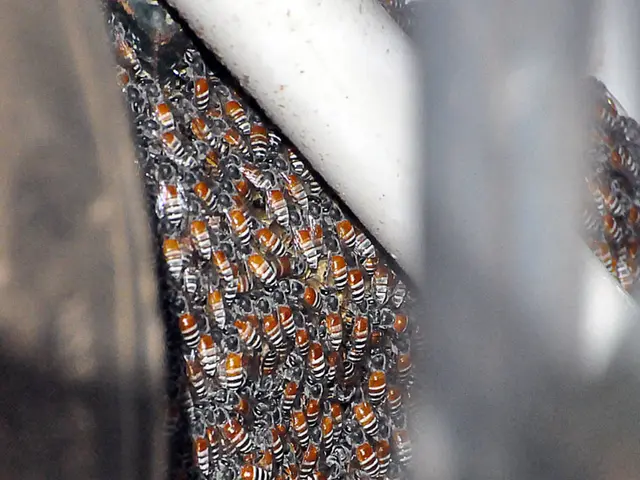EU Temporarily Eases Up on CO2 Emission Standards for Car Manufacturers
- *
Car manufacturers receive green light for reduced CO2 emissions targets from European Parliament - Car producers receive approval for less stringent CO2 emission standards from the Parliament
In a move to give the automotive industry some slack, EU Commission President Ursula von der Leyen has suggested a temporary reprieve. Auto manufacturers can now blend their 2022 CO2 emissions with those of the following two years when averaging. Companies that falter in meeting emission standards this year will have until 2026 and 2027 to catch up.
This relaxation targets the so-called fleet limits - the maximum average CO2 emissions allowed for new vehicles sold by a manufacturer. Each manufacturer possesses an individual limit, which has been steadily decreasing towards zero since 2035, effectively phasing out new internal combustion engine cars.
Producers like Volkswagen and Renault are grappling with the stringent new emissions standards. They had pleaded for more room to maneuver in Brussels, as flouting EU regulations could lead to hefty fines.
The 27 EU member states still need to officially endorse this legal change; however, they already concurred on Wednesday. Moreover, the law also offers another means to dodge penalties: manufacturers can band together with competitors to form "pools," with an average limit applying.
Far-right factions within the European Parliament tabled additional proposals aiming to rescind the 2035 ban on new internal combustion engines; however, their proposition wasn't supported by a majority on Thursday. Even the European People's Party (EPP) - that includes the CDU and CSU - has long-term ambitions to abandon the combustion engine ban.
This issue might flare up when the law is revisited towards the end of the year, potentially causing disagreements within the new German government. The SPD is determined to uphold the ban, while the Union favors a more lenient stance. The coalition agreement only settled on a general agreement, leaving room for future discussions.
- EU
- European Parliament
- EU Parliament
- Strasbourg
- Ursula von der Leyen
Source: EU Parliament, CO2 Emission Standards, Car Manufacturers
The EU Parliament has recently voted to permit car manufacturers to meet their CO2 emissions targets based on an average over the 2025-2027 period, rather than annually. This decision, backed by a majority of 458 votes for, 101 against, and 14 abstentions, offers more flexibility to automakers during their transition towards zero-emission vehicles.
Critics argue that this leniency could impede the rapid shift towards fully electric vehicles, especially if manufacturers opt for temporary averaging instead of accelerating their production of electric vehicles. However, the broader goal remains the reduction of emissions and the shift towards sustainable mobility by 2035.
In essence, while the EU Parliament's decision offers temporary relief, it is part of a planned strategy to support the automotive industry's transition to a zero-emission future. The elimination of new internal combustion engine cars by 2035 is a longstanding objective, with the focus remaining on achieving significant emission reductions in the coming years.
- The temporary reprieve proposed by EU Commission President Ursula von der Leyen allows car manufacturers to average their 2022 CO2 emissions with those of the following two years.
- This relaxation applies to the so-called fleet limits, which are the maximum average CO2 emissions allowed for new vehicles sold by a manufacturer.
- The EU Parliament, in a majority vote, has allowed car manufacturers to meet their CO2 emissions targets based on an average over the 2025-2027 period, offering more flexibility during the transition towards zero-emission vehicles.
- The European Parliament, in Strasbourg, has tabled additional proposals to rescind the 2035 ban on new internal combustion engines, but these proposals were not supported by a majority.
- In the general news, there is discussion about potential disagreements within the new German government regarding the ban on new internal combustion engine cars.
- The broader goal remains the reduction of emissions and the shift towards sustainable mobility by 2035, with this decision being part of a planned strategy to support the automotive industry's transition to a zero-emission future.








